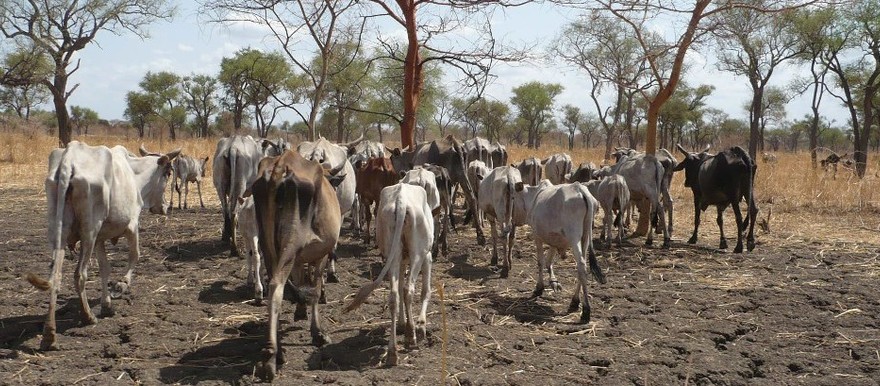South Sudan’s Dinka Malual and Sudan’s Rizeigat border communities have suspended the seasonal cattle migration to early February, the community leaders confirmed.
The communities agreed to allow the Rizeigat herders from East Darfur and South Darfur states to enter South Sudan’s Northern Bahr el-Ghazal in the first week of February, searching for pastures and water for livestock.
The timeframe allows the Dinka Malual farmers in Northern Bahr el Ghazal State to harvest all their produce, and is part of local mechanisms that manage conflicts between the communities.
Speaking to Radio Tamazuj, the Dinka Malual Joint Border Peace Committee the Spokesman, Majok Deng, said that some Rizeigat herders had crossed into Aweil North County without respecting the agreed timeline.
He said the cattle keepers had crossed through Mayom Kuol, Kiir Adem, Jaac and Kiir Kangbek corridors in the first week of January, and that both the communities had agreed to send them back until the agreed time.
“According to our agreements, the Arab herders shall enter South Sudan’s Northern Bahr el-Ghazal territories in the first week of February every year, but to our surprise; the Rizeigat cattle keepers have already entered our territories without respecting the timeline. We have alerted the Dinka Malual and the Rizeigat representatives to ensure that the herders return until the agreed time,” said Deng.
“We also understand that the herders were possessing guns, which is not allowed. We have informed them to come empty-handed when the right time comes and their security is protected by South Sudan and Northern Bahr el-Ghazal State governments,” he warned.
The Chairperson for Rizeigat Peace Committee, Abdalla Sadiq Saad, confirmed the arrival of their members, saying that they had ordered them back until February, to avoid disputes with their Dinka Malual counterparts.
“Of course, some of our cattle have entered in South Sudan zones without our information, but we have ordered them back. The estimation of the cattle is around 500-700,” said Saad.
Aweil North County Commissioner Kiir Chan Wol said the timeframe for the cattle migration begins early February, asserting that any change may affect local the food producers.
“The arrival of Arab herders is in the first week of February every year and if there is any change, it shall be decided by the government and peace committees from both sides because some of the inhabitants are still harvesting their farms,” Wol said.




